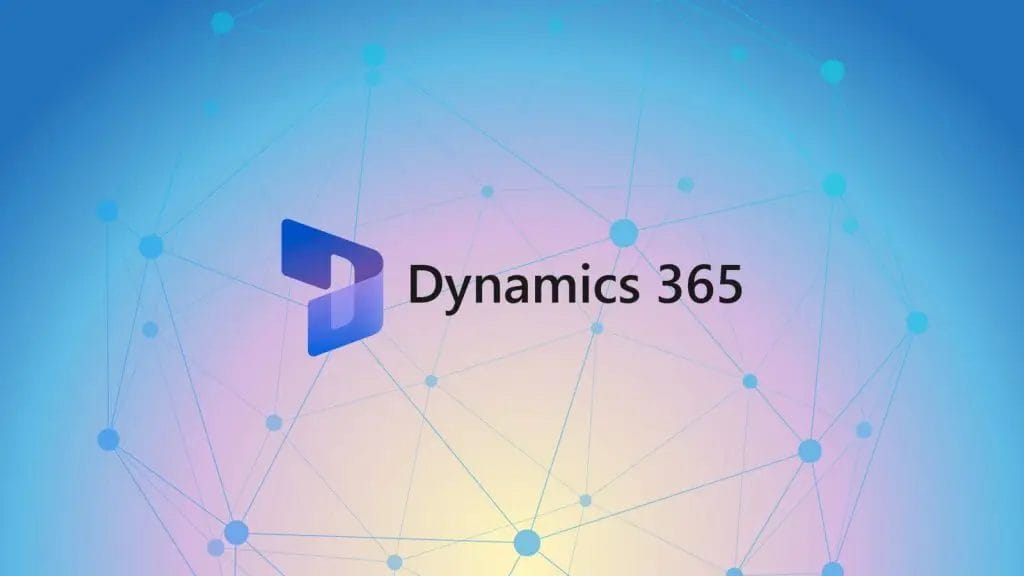Understanding the Role of an ERP Consultant

Understanding the Role of an ERP Consultant
Enterprise Resource Planning (ERP) systems have revolutionised the way businesses manage their operations. These software solutions integrate various departments and functions, streamlining processes and increasing efficiency. However, implementing and managing an ERP system requires expertise and knowledge. This is where an ERP consultant plays a crucial role. In this article, we will delve into the world of ERP systems, highlight the importance of ERP in business management, and shed light on the role of an ERP consultant.
Additionally, we will explore the skills and qualifications required to become an ERP consultant, outline the benefits of hiring one, and provide insights on choosing the right ERP system for your business. Furthermore, I will discuss the advantages of Microsoft Dynamics 365 as an ERP solution and how to become a Microsoft Partner for ERP consulting. Lastly, I will offer guidance on finding the right ERP consultant for your organisation.
What is an ERP system?
An ERP system is a software solution that integrates and manages various aspects of a business, including finance, human resources, supply chain, customer relationship management, and more. It serves as a centralised platform that allows different departments to access and share information, enabling smooth coordination and collaboration across the organisation.
ERP systems provide real-time visibility into business operations, enabling data-driven decision-making. They automate repetitive tasks, reduce manual errors, and optimise processes, resulting in increased productivity and cost savings. Moreover, ERP systems facilitate regulatory compliance and enhance customer satisfaction through improved order fulfilment and service delivery.
The importance of ERP in business management
In today’s fast-paced and highly competitive business landscape, effective management is crucial for success. An ERP system plays a pivotal role in business management by providing a comprehensive view of the organisation’s operations and enabling efficient resource allocation. It breaks down silos and fosters collaboration, ensuring that all departments are aligned towards common goals.
With an ERP system in place, businesses can streamline their processes, reduce inefficiencies, and eliminate redundant tasks. This increases productivity and frees up valuable resources that can be redirected towards strategic initiatives. Moreover, ERP systems provide accurate and up-to-date information, enabling timely decision-making and proactive management. They also facilitate data analysis and reporting, allowing businesses to gain valuable insights and identify opportunities for improvement.
The role of an ERP consultant
An ERP consultant is a professional who specialises in implementing, customising, and managing ERP systems. They act as a liaison between the business and the technology, ensuring that the ERP system meets the specific needs and requirements of the organisation. An ERP consultant possesses a deep understanding of business processes and industry best practices, allowing them to align the ERP system with the organisation’s goals and objectives.
The role of an ERP consultant involves various responsibilities. They analyse the organisation’s current processes and identify areas for improvement. They work closely with stakeholders to define requirements and configure the ERP system accordingly. They provide training and support to end-users, ensuring smooth adoption and utilisation of the ERP system. Additionally, ERP consultants monitor system performance, troubleshoot issues, and implement upgrades and enhancements as needed.
Skills and qualifications of an ERP consultant

To excel as an ERP consultant, certain skills and qualifications are essential. Firstly, a strong understanding of business processes and operations is crucial. This includes knowledge of finance, supply chain, human resources, and other functional areas. ERP consultants should also be well-versed in industry-specific best practices to ensure that the ERP system aligns with the unique requirements of the organisation.
Technical expertise is another key aspect of being an ERP consultant. Knowledge of ERP software, such as Microsoft Dynamics 365, is essential. ERP consultants should be proficient in system configuration, customisation, and troubleshooting. They should also have a good grasp of data management, integration, and reporting tools. Additionally, strong analytical and problem-solving skills are crucial for identifying and resolving issues that may arise during the implementation and management of an ERP system.
Furthermore, effective communication and interpersonal skills are vital for an ERP consultant. They need to collaborate with stakeholders at all levels, including executives, managers, and end-users. Clear and concise communication is essential for understanding requirements, explaining technical concepts, and providing training and support. Moreover, ERP consultants should be adaptable and able to manage multiple projects and priorities simultaneously.
Benefits of hiring an ERP consultant
Hiring an ERP consultant can bring numerous benefits to an organisation. Firstly, an ERP consultant possesses specialised knowledge and expertise that may be lacking within the organisation. They can provide valuable insights and recommendations based on their experience with implementing and managing ERP systems across various industries. This can significantly enhance the effectiveness and success of the ERP implementation.
Additionally, an ERP consultant can expedite the implementation process. They have a deep understanding of the ERP software and best practices, allowing them to configure the system efficiently and effectively. This saves time and reduces the risk of errors and issues during the implementation phase. Moreover, ERP consultants can provide training and support to end-users, ensuring a smooth transition and maximising the utilisation of the ERP system.
Another benefit of hiring an ERP consultant is their ability to tailor the ERP system to the specific needs of the organisation. They can customise the system, configure workflows, and develop reports and dashboards that align with the organisation’s requirements. This ensures that the ERP system provides maximum value and meets the unique needs of the business.
Choosing the right ERP system for your business
Selecting the right ERP system is a critical decision for any business. The chosen system should align with the organisation’s goals, requirements, and budget. There are several factors to consider when choosing an ERP system.
Firstly, it is essential to assess the specific needs and pain points of the organisation. Identifying the key requirements and functionalities required from an ERP system will help narrow down the options. It is also important to consider scalability, as the chosen system should be able to accommodate future growth and expansion.
Another factor to consider is the industry and the specific regulatory and compliance requirements. Certain industries have unique needs that may require industry-specific ERP solutions. It is crucial to ensure that the chosen ERP system can fulfil these requirements and facilitate compliance.
Integration capabilities should also be considered when selecting an ERP system. The chosen system should be able to integrate with other existing software solutions, such as CRM or HR systems, to ensure seamless data flow and eliminate silos.
The advantages of Microsoft Dynamics 365 in ERP

Microsoft Dynamics 365 is a leading ERP solution that offers numerous advantages for businesses. It is a comprehensive and integrated platform that combines ERP, CRM, and other business applications into a single system. This provides a unified view of the organisation and enables seamless collaboration and data sharing across departments.
One of the key advantages of Microsoft Dynamics 365 is its flexibility and scalability. It can be customised and configured to meet the unique needs of businesses across various industries. It also offers a range of modules and functionalities that can be added or removed as per the organisation’s requirements. This ensures that the ERP system grows and evolves with the business.
Moreover, Microsoft Dynamics 365 provides advanced analytics and reporting capabilities. It offers powerful data visualisation tools and built-in business intelligence features that enable organisations to gain valuable insights and make data-driven decisions. This enhances performance monitoring, forecasting, and strategic planning.
Furthermore, Microsoft Dynamics 365 is a cloud-based solution, which offers several benefits. It eliminates the need for on-premises infrastructure and provides access to real-time data from anywhere, anytime. It also ensures automatic updates and enhancements, reducing maintenance efforts and costs. Additionally, the cloud-based nature of Microsoft Dynamics 365 ensures high levels of security and data protection.
How to become a Microsoft Partner for ERP consulting
Becoming a Microsoft Partner for ERP consulting requires meeting certain criteria and demonstrating expertise in Microsoft technologies. Firstly, it is necessary to become a member of the Microsoft Partner Network. This involves registering as a Microsoft Partner and paying the annual membership fee.
Once a member of the Microsoft Partner Network, it is crucial to achieve the necessary competencies and certifications. Microsoft offers various competency tracks, including ERP, that align with different areas of expertise. To become a Microsoft Partner for ERP consulting, it is essential to attain the relevant ERP competency, which includes passing exams and meeting performance targets.
Additionally, it is important to demonstrate successful implementation and customer satisfaction through customer references and case studies. Microsoft requires partners to showcase their expertise and track record in delivering high-quality Microsoft solutions to enterprises.
Finding the right ERP consultant for your organisation
Finding the right ERP consultant for your organisation is a critical decision that can greatly impact the success of your ERP implementation. It is important to consider several factors when selecting an ERP consultant.
Firstly, it is advisable to look for consultants with experience in your industry. Industry-specific knowledge and expertise can greatly contribute to the effectiveness and efficiency of the ERP implementation.
Additionally, it is important to assess the consultant’s track record and reputation. Requesting references from previous clients and reviewing case studies can provide insights into the consultant’s capabilities and success in delivering ERP solutions.
Moreover, it is crucial to evaluate the consultant’s communication and interpersonal skills. A good ERP consultant should be able to understand your requirements, explain technical concepts clearly, and collaborate effectively with stakeholders at all levels.
Lastly, it is essential to consider the consultant’s approach and methodology. A well-defined and structured implementation process ensures that the ERP system is implemented efficiently and effectively. It is important to discuss the consultant’s methodology and ensure that it aligns with your organisation’s goals and requirements.
Conclusion
In conclusion, an ERP system plays a crucial role in business management, enabling organisations to streamline processes, increase efficiency, and make data-driven decisions. The role of an ERP consultant is vital in ensuring the successful implementation and management of an ERP system. ERP consultants possess the necessary skills and qualifications to align the ERP system with the organisation’s goals and requirements. Hiring an ERP consultant like Carbon and Finch brings numerous benefits, including specialised expertise, expedited implementation, and customisation capabilities.
Choosing the right ERP system for your business requires careful consideration of specific needs, industry requirements, and integration capabilities. Microsoft Dynamics 365 offers several advantages as an ERP solution, including flexibility, scalability, advanced analytics, and cloud-based functionality. Becoming a Microsoft Partner for ERP consulting involves meeting certain criteria and demonstrating expertise in Microsoft technologies.
Finding the right ERP consultant for your organisation involves assessing industry-specific knowledge, track record, communication skills, and implementation approach. It is a decision that should be made after a thorough evaluation to ensure a successful ERP implementation.




